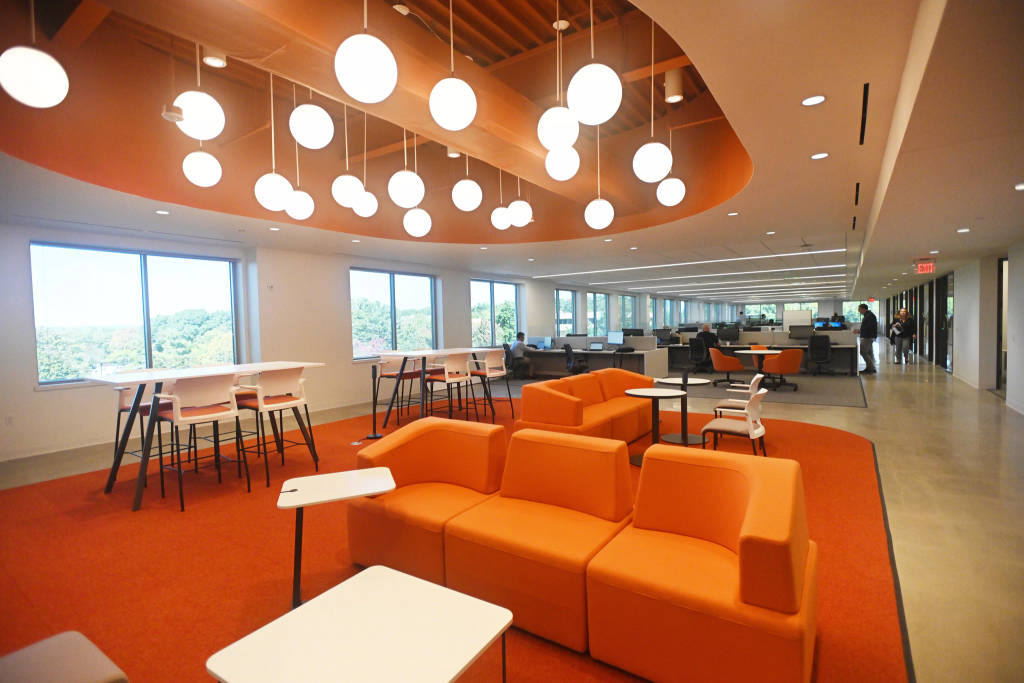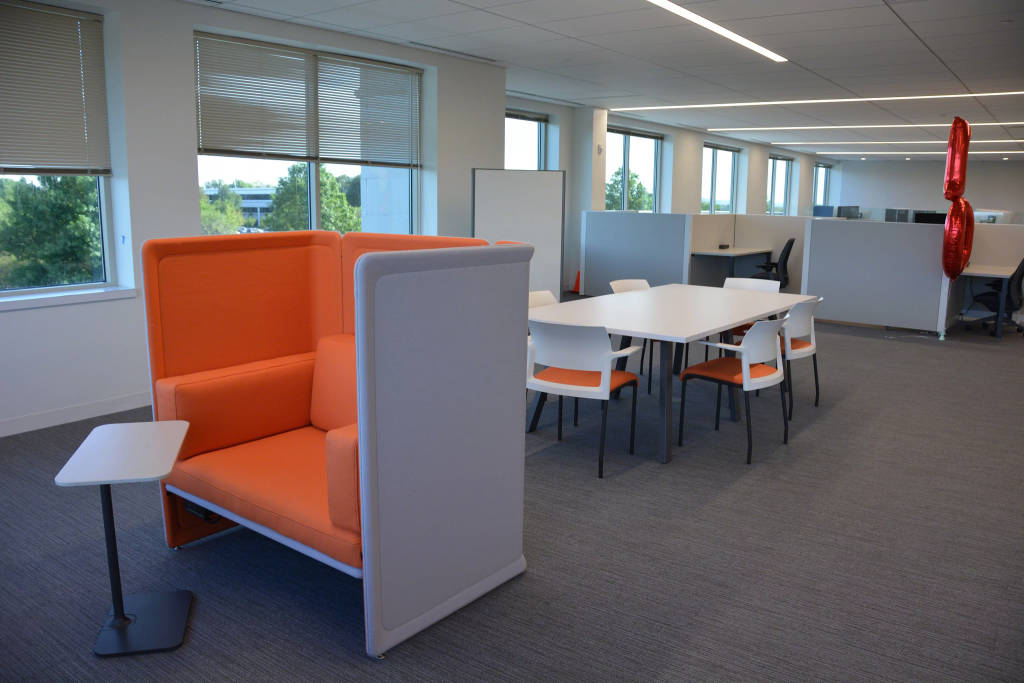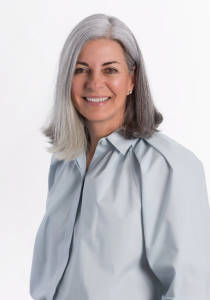How Party City Inspires Joy for Their Employees
Party City’s Chief HR Officer shares how more choice fosters resilience and enhances collaboration.
From birthday parties to weddings to graduations, Party City is dedicated to helping people create memorable experiences, while also creating positive experiences for their employees. Party City’s purpose is to “inspire joy.” The leading provider of retail party goods says good things happen when we take the time to connect.
Dr. Tracy Brower, vice president of Workplace Insights at Steelcase, spoke with Denise Kulikowsky, Chief Human Resources Officer at Party City to discuss the changing expectations of employees and how HR is enabling choice within their organization through people, policy and space.

Dr. Tracy Brower: In what ways have your perspectives on the work experience changed over the past few years?
Denise Kulikowsky: One of the biggest things that has shifted is my perspective of collaboration. I used to take for granted the value of working together in person and really having the opportunity to build trust, engage, to coach and to mentor. We really had lost sight of the value of the nuances of working in person.
We have been trying to work in a hybrid way, and it’s amazing to see when people are in the office together, the energy, and the connection that happens.
No doubt every time I’m in the office, I have those drive-by moments, where people pop into my office to check in and wow great progress seems to get made in those moments!
Another shift I think a lot about is choice and how we help our team members match the outcomes they are trying to achieve with where and how they work. Leaders who personalize the work experience for everyone on their team have better outcomes. It is so important to consider the whole person, not just the “work person” anymore.
TB: What are the biggest benefits you’ve seen to being intentional about being in person?
DK: When people are in person, they have a very different opportunity for coaching and mentorship. There is the ability to have a different cadence of a conversation that you don’t get on a screen. That shift to hybrid is important because we’ve got to be super purposeful about where we work, when we work, with whom and why. We really need to keep in mind how to make the most out of our daily work lives. When we are intentional about being in person, we are not only more effective, but we are also more efficient and that offers time and space back to everyone.
TB: In what way do you feel like employee expectations have also shifted?
DK: The employee-employer proposition has really shifted materially and at its core. Employees now require choice. I think in the past, they appreciated choice, but now they require choice. So many new opportunities for how and where you can work have been validated. So no longer can anyone say “Oh, you can’t work from home.” That is just not reality anymore because it has been validated, working at home can be effective. Companies are now making shifts to enable employees to have more choice.
Beyond this, employees now want a very different level of voice in the company. They have always wanted a voice, but now there is a platform and an openness, willingness and awareness that employee voices are really important and make a difference. Consulting with employees about what they are feeling and what their needs are serves the employee and serves the company, so it is a win-win.

TB: What are some of the key business and people issues you are addressing?
DK: There are a myriad of political and human rights issues being debated in the country right now along with several major world events that impact many of our employees in some way on a day-to-day basis. We endeavor to be supportive and empathetic so our employees feel respected, included and that they belong.
One of the other major business issues we are dealing with is we’re still a company transforming. We started that transformation at the beginning of COVID. There is not really a road map for what we are doing both from a business strategy and an employee perspective. Transforming a company is incredibly challenging and although also incredibly gratifying, it is hard work. When you think about coming out of two years of the pandemic and layering in all the previously mentioned political, economic, human rights issues, people are dealing with some level of exhaustion, physical, mental and/or emotional. As human beings, it is critical we care for one another so that each of us can be our best both at work and in our personal lives.
There are so many different pillars of resilience we’re starting to talk about and to help employees think about. We are encouraging and modeling open dialogue about resilience, wellness and managing energy.
TB: In what ways have you seen HR and business issues connect to place?
DK: We are currently in the process of taking our four corporate offices and bringing everyone into one space. This was about bringing together and integrating our organization. As we’ve planned and built our new space from the ground up, we’ve thought about a lot of the issues I’ve already mentioned; collaboration, resilience and belonging. We have created open spaces, workrooms, huddle rooms, wellness rooms and meditation rooms all of which are designed with function and furnished with comfort in mind.
We hope, although we have not moved in yet, that we have created individual workspaces in a way that acknowledges some employees need a quiet space to focus. Other employees appreciate the energy of having people around them. Some are accustomed to the comfort of their home. So, for us, it is very much an HR issue connected to space because we are trying to have people feel that they belong, and this is a place they can come and be productive and comfortable. It really is no longer one-size-fits all and we are trying to evolve in a way that our space will be inviting and enable modern work.

Denise M. Kulikowsky has been the Chief Human Resources Officer at Party City Holdings Inc since November 2018. Prior to joining the Company, Ms. Kulikowsky served as the Vice President, Global Human Resources for The Estee Lauder Companies, Inc. from 2015 to 2018. Before joining The Estee Lauder Companies Inc, Ms. Kulikowsky held several senior human resources positions of increasing responsibility at Gap Inc. Ms. Kulikowsky has an undergraduate degree in Psychology from Fordham University and a master’s degree in Counselling from The University of Pennsylvania.


